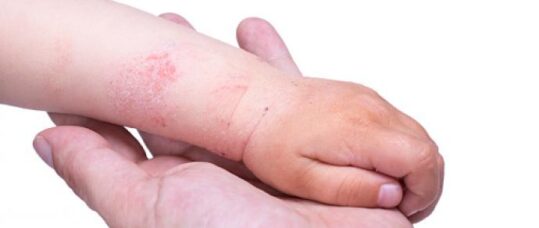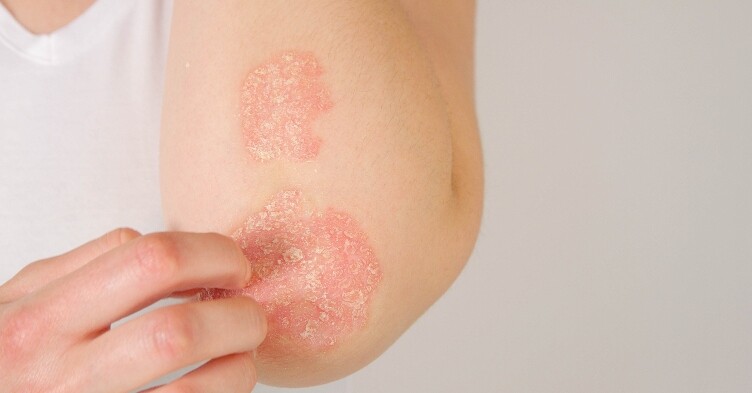Blog: Eczema from a child and parents point of view

For parents the eczema journey can prove challenging, with many finding every step a new experience. Often they are told: “its only eczema or a bit of eczema” so some have a long journey before they are seen by specialists despite there being clear referral guidance from NICE 2007.1
What is important when caring for children with eczema is to engage with the children (if their old enough) and their family. For many families they have to employ a range of strategies, which include involving the child in their treatment, distracting the child during treatment, or making the treatment time a game and/or using rewards. At times this can be challenging. Stories about eczema can help; a recent study developed personalised stories as a technique to improve treatment adherence.2 These stories are available for parents to personalise with the themes focusing on adherence and the itch scratch cycle (see Resources).
Eczema can be controlled and does improve but can flare very quickly if treatment routines are not maintained.
This is Jake’s (age six) eczema story written by his mother Kerry:
Jake’s eczema emerged a few weeks after being born. There has always been eczema and asthma in the family so it wasn’t a big surprise, however it proved to be a difficult and long journey to get the eczema stabalised. Initially, the eczema presented on Jake’s face, mainly around his eyes and then showed on his legs and continued to spread across his whole body in big red blotches. Seeing huge patches cover his body caused me distress and it was hard because Jake wasn’t talking so he couldn’t tell me if he was itching.
We went through quite a few doctors appointments and health visitors who told us to use anything from olive oil to aqueous cream, but nothing helped. We were also living in Germany at the time, as we are a British army family. The doctors were sympathetic but seven month old babies with eczema were not their specialty.
In desperation we came back to our hometown, Nottingham and registered Jake at a local GP. He immediately referred us to the local specialist team where Jake’s care really began, this was when he was about 18 month old. We even made extra flights from Germany to see them when he had a bad flare up and were only able to do this because the team totally understood our position and always gave us a convenient appointment.
Jake’s routine was always about using a good emollient that suited him. We went through three before we found it! I used to find creaming him up quite stressful when he was a baby as I could tell Jake found it uncomfortable. It has become easier as he has got older. We are now used to spotting the signs of an outbreak, which tend to occur on his hands and face. It’s great to say that with specialist support Jake’s eczema is well under control.
If I could give any advice to parents on the same journey it is to get the whole family involved – I have a list of creams, where to use and their strength on Jake’s bedroom wall. Keep in touch with your nurse practitioner as they always have little tricks and advice to try. Often I wasn’t confident that I was doing the best for Jake but a quick email always put my mind at rest.
Just remember we will all have good and bad days, for example: I once found Jake had scratched his fingers till they were bleeding on a piece of sand paper in a toddler book- he couldn’t tell me his fingers were itching and we learnt to look for signs more often.
Related Article: Abdominal body fat is a higher risk for developing psoriasis
The good days will remind you that you and your child can manage the eczema and you are doing the right thing. Today Jake’s eczema is well controlled but he still needs active treatments to maintain that control.
Below is an interview with Jake and his mother about his eczema showing how well they have managed it:
An interview with Jake and his mother about his eczema showing how well they have managed the condition
Mum: Jake, can you remember when the itching was all over your body. It was quite bad once.
Jake: No. What happened mummy?
Mum: You had to get a test to see what made you itch. That’s when we got the right cream for you. How does the cream feel?
Jake: It feels soft. Well sometimes it stings and my fingers sting.
Mum: Why does it sting? What makes your fingers worse do you think?
Jake: I pick the little bits. They are very sore but I can’t help it. I like picking them, then the cream stings. I like it when they have plasters on so then I can’t pick them and make them sting.
Mum: Yes it’s better to have a plaster on sometimes. Does your skin ever upset you in school?
Jake: No.
Mum: Do the children at school notice?
Jake: No.
Mum: Does it stop you from playing?
Jake: Only sometimes, in the sand or the water because my plaster will get wet.
Related Article: CPD: Case by case – acute and emergency dermatology presentations
Mum: Do you like to go to the hospital and see Sandra?
Jake: Yes I get to stay off school! And then I have to tell my teacher why I am going.
Mum: Does your skin being itchy upset you?
Jake: I get fed up of the cream. I don’t like cream on me at bed time [talking about the emollient cream] it takes too much time and gets everywhere.
It is also worth noting that olive oil3 and aqueous cream4 are products we do not advise using.
Resources
The University of Nottingham. Using stories to help children with eczema – https://www.nottingham.ac.uk/research/groups/cebd/resources/psychology-a…
National Eczema Society – http://www.eczema.org
References
1. National Institute for Health and Care Excellence. Atopic eczema in
Related Article: Mythbuster: ‘This patient’s ulcer swab is positive so they need antibiotics’
children: Management of atopic eczema in children from birth up to the age of 12 years. NICE, CG57. https://www.nice.org.uk/guidance/cg57(accessed 12 August 2016)
2. Naidoo RJ, Williams HC. Therapeutic use of stories for children with atopic eczema and other chronic skin conditions. Pediatric Dermatology 2013;30(6):765-7.
3. Cooke A et al.Olive Oil, Sunflower Oil or no Oil for Baby Dry Skin or Massage: A Pilot, Assessor-blinded, Randomized Controlled Trial (the Oil in Baby SkincaRE [OBSeRvE] Study). Acta Dermo-Venereologica 2016;96:323–330.
4. MHRA. Aqueous cream: contains sodium lauryl sulfate which may cause skin reactions, particularly in children with eczema, 2013.http://www.mhra.gov.uk/safety-public-assessment-reports/CON251956 (accessed 12 August 2016)

See how our symptom tool can help you make better sense of patient presentations
Click here to search a symptom


For parents the eczema journey can prove challenging, with many finding every step a new experience. Often they are told: “its only eczema or a bit of eczema”



